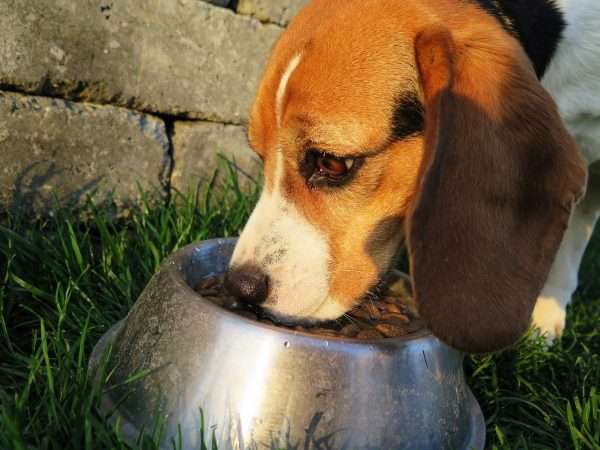Properly Feed Your Pets
Is your pet a fussy eater? Does your furry friend have special dietary needs or restrictions? Are you having issues with destructive chewing or other related behavior due to your animal’s discontent with his diet? Are you concerned that the food you are currently feeding your fur babies is not meeting their nutritional needs? If so, here are some suggestions on how to properly feed your pets.

1. A balanced diet is essential to properly feeding your pets
Pets make our lives more complete. They provide companionship, love, loyalty, and purpose. All they ask in return is for their owners to give them affection and make certain their needs are met. Some primary concerns among animal lovers are to keep them well-fed, content, and comfortable. Good nutrition is a crucial part of achieving these goals. The food your pet eats is one of the most important parts of keeping them happy and healthy.
It is also important to note that pet food can be one of the biggest expenses that pet owners rack up over time. While you may want to keep your pet’s food budget within limits, it is also crucial to ensure they have a balanced diet. By doing so, you will help keep their energy levels up, their bodies properly nourished, and their vet bills under wraps.
Finding the right food
If you are searching for quality food for your furry friend, be sure to check out this list of the best dog foods thus far in 2019. Not all dog foods are created equal. Believe it or not, some foods will prove a whole lot better for your pet than others. Since your dog is entirely dependent on you when it comes to eating a healthy and balanced diet that meets all of their nutritional needs, it’s extremely important that you choose food that meets all your dog’s dietary needs.

2. Focus on Value vs. Cost
An important aspect that pet owners–newbies and experienced–should recognize is the need to focus on value and nutritional content over cost. While it may be tempting to buy inexpensive food for a large pet that consumes copious amounts, it is important to realize that cheaper food usually contains more filler ingredients that provide little or no nutrition. As a result, your pet will not be satisfied following meals, which may lead to the animal consuming more food and/or disruptive behavior. Properly feeding your pet includes researching what your pet’s nutritional needs are and consulting your veterinarian and/or animal trainer about what pet food is best suited for them.
If your pet has special dietary needs, it is important to structure their food intake around these needs. The incidences of diabetes among the pet population has skyrocketed over the last decade, specifically in dogs and cats. This is often the result of a poor, inadequate diet or owners who overindulge their animals with excessive table scraps. Some table scraps are acceptable, but you should closely monitor the amount and content of the “people food” they are given. When giving your pets table scraps, stick to small portions of lean meats, fish, vegetables, and whole grains. You should also avoid giving them any foods that are high in fat and/or sugar content.
Portion control
Every breed requires different a portion of food. A Yorkshire Terrier, for example, will need significantly less than a St. Bernard. Generally speaking, the smaller the dog, the less they will require and most dogs will eat until they are full and then stop. But, occasionally you will get dogs who will eat as much as they possibly can at every opportunity, whether they’re hungry or not, and this could lead to problems such as obesity down the line.

Alternatively, you might not offer enough and your pet will become underweight and experience the detrimental health effects that come hand in hand with this. So, do a little research regarding your dog’s breed and how much they should be eating. If you’re ever in doubt, consult your vet. They will be able to tell you whether your dog is a healthy weight or not and will be able to recommend exact portion sizes for them as a unique individual.
Providing More than Just Meat
Most of us consider dogs carnivores and consequently feed them a diet revolving solely around meat, but this is a common mistake. While dogs are descended from wolves who are carnivores and do enjoy meat, they are actually omnivores. They can benefit from a diet of meat supplemented with vegetables and food from other categories and groups. Crunching on carrots is good for their teeth.
Properly feeding your pets includes making sure whatever you are feeding them is safe . You can check a safe foods list here. You can also add certain fish oils like salmon oil for dogs, but again, check that the brand and type you’re using is safe and approved. Always check with your vet if in doubt.

Catering to Individual Needs
If your dog has a sensitive stomach and experiences illness when eating certain foods, you may want to try out plain foods that are less processed, like oven cooked chicken breast. This will be more gentle on their stomach. Alternatively, there are specialist sensitive foods out there too!
3. Reserve a Special Dining Area
You want your pet to feel valued and secure. They are part of the family; therefore, to properly feed your pet, it is important that you reserve a special area for their food and water dish in the house. While they should have their own spot, it should be in close proximity to where you and your family eat.
This will send them the message that they are a member of your pack and provide them with a sense of inclusion while still allowing them their own eating area. Another benefit of this arrangement is that it should help squelch the animal’s need to beg for table scraps. While some begging is to be expected, pets who do it a lot are often seeking reassurance and connection with their caretakers.

Whether you are a newbie or veteran pet owner, knowing how to properly feed your pets and meet their needs is essential. It does not matter if your dog (or cat or other pet!) is a fussy eater or has special dietary requirements; it is part of your job as their owner to learn about their nutritional needs. This may help prevent a lot of destructive behavior or discontent over your animal’s diet. A healthy dog is a happy dog, and that’ll make you a happy pet owner!

[…] pet owners make the mistake of feeding their dog too much and too often. Overfeeding your dog can cause them to gain weight, This can shorten their life. The amount that a dog should […]